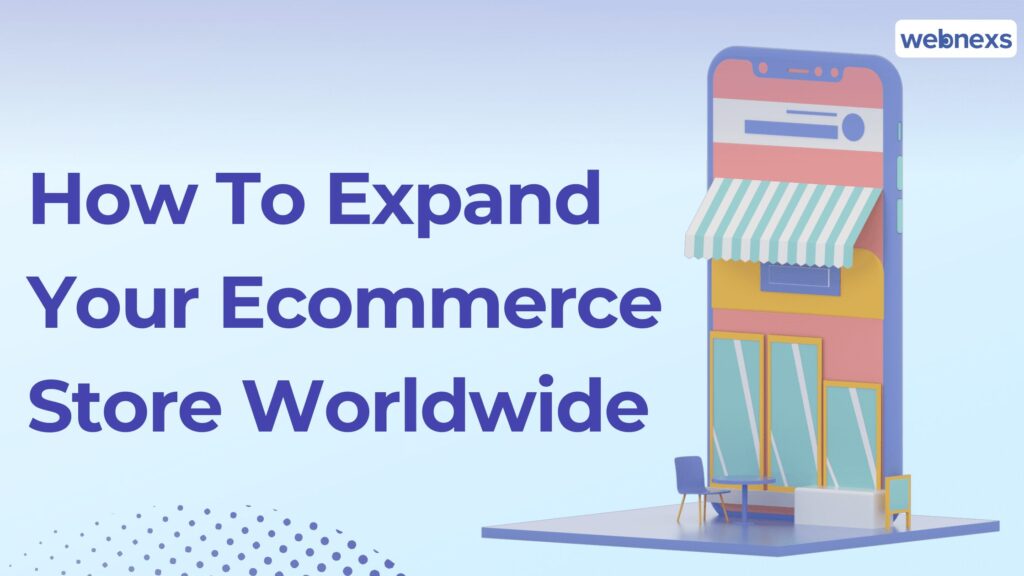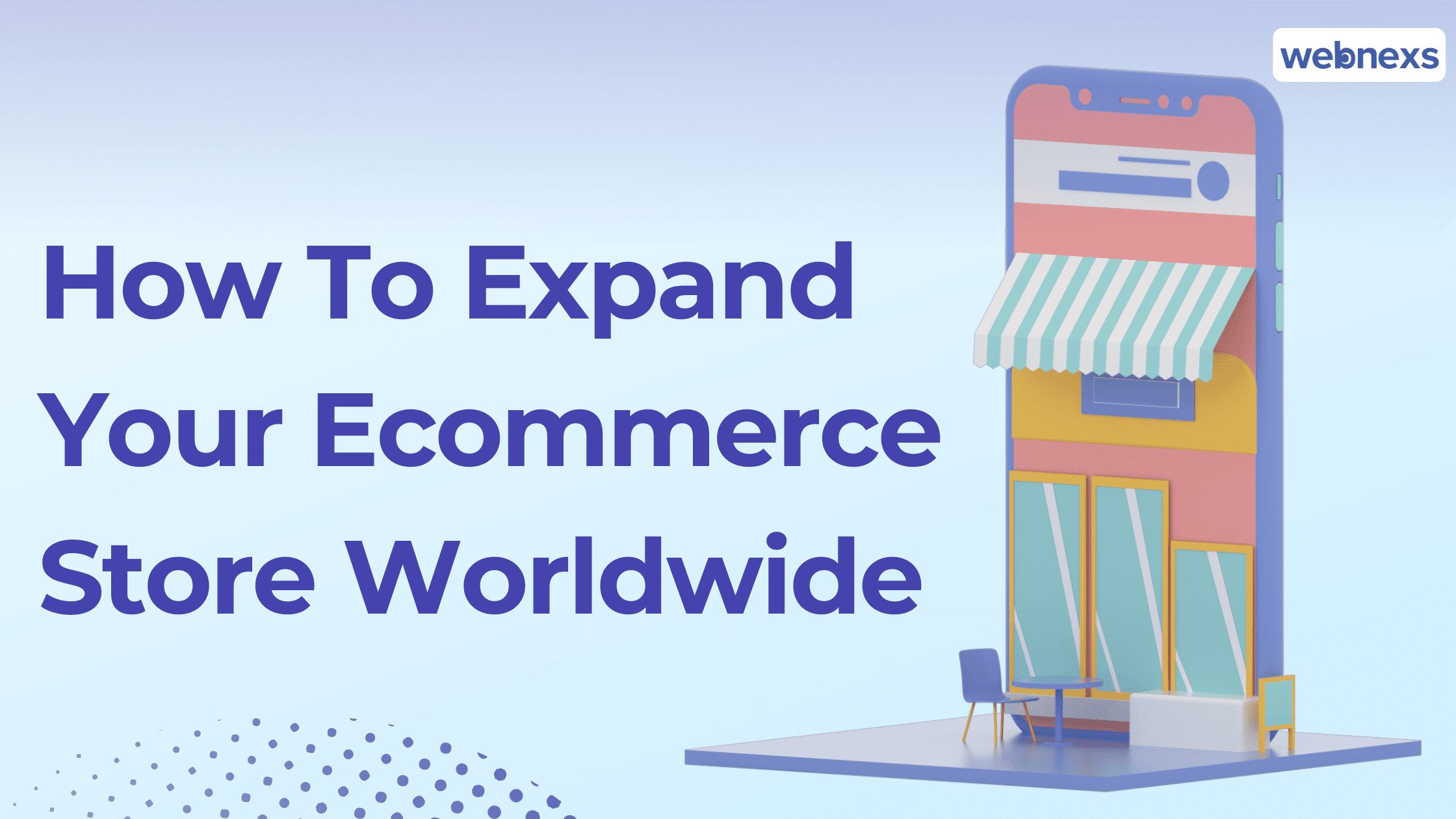Introduction
E-commerce store are one of the hottest new internet businesses. They’re profitable, easy to set up and maintain, and you can start with very little up-front investment.
Increasing sales and securing new customers in ECommerce stores with global ambitions is undoubtedly challenging. Many factors can prevent an online retailer from expanding internationally, including language barriers, high shipping costs, and the cost of operating in another country.
These factors can be prohibitively expensive for small businesses or even large corporations looking to market their brands on a global scale.
In this article, we’ll go through exactly how you can set up a successful ecommerce store that sells in multiple countries simultaneously.

Ecommerce Is A Profitable Business For The Future
The online sales industry is rapidly expanding, with online sales expected to reach $4.5 trillion by 2021. The increasing popularity of online shopping, the proliferation of mobile devices, and the rise of new technologies such as social media, artificial intelligence, and Big Data are driving this growth.
There are several reasons why ecommerce will be a profitable business in the future. First, the global ecommerce market is massive and expanding. Second, ecommerce provides consumers with a convenient and efficient way to shop for products and services.
Third, ecommerce businesses can sell their products and services to a global audience. Fourth, ecommerce businesses can rapidly and efficiently scale.
Finally, ecommerce companies have the potential to generate large profit margins.
We hope you find this website helpful and that you will return.
1. By 2040, the global ecommerce market expects to be worth $27 trillion.
2. By 2021, the number of online shoppers expects to reach 2.14 billion.
3. Ecommerce sales are expected to account for 22% of all retail sales worldwide by 2022.
4. Global retail ecommerce sales were $2.8 trillion in 2018 and must reach $4.9 trillion by 2021.
5. With $460.9 billion in sales in 2017, the United States had the world’s largest ecommerce market.
6. China is the world’s second-largest ecommerce market, with $462.3 billion in sales in 2017.
7. With $121.3 billion in sales in 2017, the United Kingdom is the third-largest ecommerce market.
8. Germany is the fourth-largest ecommerce market, with $93.9 billion in sales in 2017.
9. With $75.3 billion in sales in 2017, Japan is the fifth-largest ecommerce market.
10. With $32.7 billion in sales in 2017, India is the sixth-largest ecommerce market.
The Benefits Of The Ecommerce Market
There are numerous advantages to participating in the eCommerce market. The ability to reach a global audience is perhaps the most apparent benefit. Businesses can access otherwise inaccessible markets by selling products and services online.
The eCommerce market is also convenient for consumers, who can shop from the comfort of their own homes.
Another advantage of the eCommerce market is that it provides businesses with a level playing field.
Online companies, unlike brick-and-mortar businesses, can compete on a global scale. This increased competition may result in lower prices and higher quality products and services.
Finally, the eCommerce market gives companies access to a wealth of data. Businesses can better understand their target markets and tailor their products and services by tracking consumer behavior.
The Components Of An Effective Ecommerce Strategy
There are numerous components to an effective eCommerce strategy, but the following are the most important:
1. A clear and concise value proposition outlines what customers can expect from your store.
2. A well-designed and user-friendly website allows customers to find and purchase what they’re looking for easily.
3. A strong and dependable payment processing system can handle a high volume of transactions.
4. An efficient shipping and fulfillment operation capable of delivering orders to customers quickly and without errors.
5. A marketing strategy that drives traffic to your store and helps convert visitors into customers.
6. A customer service strategy ensures any problems or questions are resolute quickly and efficiently.
7. A strategy for continuous improvement that keeps your store current on the latest trends and technologies.
The Best Ecommerce Store Platforms
Webnexs: Webnexs creates unique, flexible, and robust APIs that cover all aspects of headless commerce, open-source by first understanding APIs. We are more familiar with their role in eCommerce technology. Webnexs implements developer-friendly application programming interfaces to deliver engaging customer experiences across multiple channels designed for specific needs.
PrestaShop: PrestaShop is a free, open-source eCommerce platform with various features and an easy-to-use interface.
Shopify: Shopify is a multi-channel commerce platform built on the cloud for small and medium-sized businesses. It allows merchants to sell online, on social media, and in person.
BigCommerce: BigCommerce is a SaaS platform for businesses of all sizes that provides a suite of tools for building an online store, including a website builder, product catalog, and shopping cart.
Magento: Magento is an open-source eCommerce platform that provides companies with flexibility and control over their online stores.
WooCommerce: WooCommerce is a WordPress plugin that transforms a WordPress site into an online store.
Best Tips For Increasing Your Ecommerce Store Worldwide
There are numerous methods for expanding your eCommerce store worldwide. Here are some pointers:
1. Ensure that your website is available in a variety of languages.
2. Use local currency and accept local payment methods.
3. Make use of country-specific domain names or subdomains.
4. Make your website more visible to local search engines.
5. Reach out to potential customers in other countries via social media.
6. Think about using a local fulfillment service.
7. Ensure that your customer service department can handle inquiries from other countries.
8. Use shipping options that design for international customers.
9. Be aware of and sensitive to cultural differences.
10. Be prepared for any legal ramifications of doing business on a global scale.
The Importance Of International Ecommerce
International eCommerce is essential for a variety of reasons. One of the most important reasons is that it enables businesses to reach new markets and customers they would not otherwise be able to get.
It is essential for small businesses that may lack the resources to open physical stores in other countries.
International eCommerce is also essential because it can help businesses save money.
For example, avoid the costs of shipping physical products to other countries. They can also save money by not opening physical stores in other countries.
Finally, international eCommerce can help businesses in developing their brand. Businesses can demonstrate that they are global companies committed to providing quality products and services to customers worldwide by selling products in other countries.
Headless Commerce Is The Future Of Ecommerce
There are numerous reasons to believe that headless commerce is the way of the future.
Some of the advantages of headless commerce are as follows:
1. Greater flexibility and agility: Headless commerce separates the frontend from the backend, allowing for greater flexibility and agility in updates and changes.
2. Improved performance: Because the backend does not hamper the frontend, headless commerce can improve page load times and overall performance.
3. Improved customer experience: Headless commerce enables a more personalized and customized customer experience because the front end can be trim to the customer’s specific needs and desires.
4. Greater scalability: Headless commerce can be more scalable than traditional eCommerce solutions because it can easily combine with third-party applications and systems.
5. Enhanced security: Headless commerce can provide enhanced protection because the frontend indirectly connects to the backend.
Overall, headless commerce offers numerous advantages that can improve business and customer eCommerce experiences.
Click Here: Is Headless Ecommerce Solutions Right For Your Business?
Final words:
Before expanding your eCommerce store or small business to a global scale, consider the following factors: prices, taxes, language, and currency. If you do decide to expand your eCommerce store internationally,
Using this principle strategically, you will prepare for the new possibilities of increasing your eCommerce store globally.


Leave a Reply to Edward Cancel reply